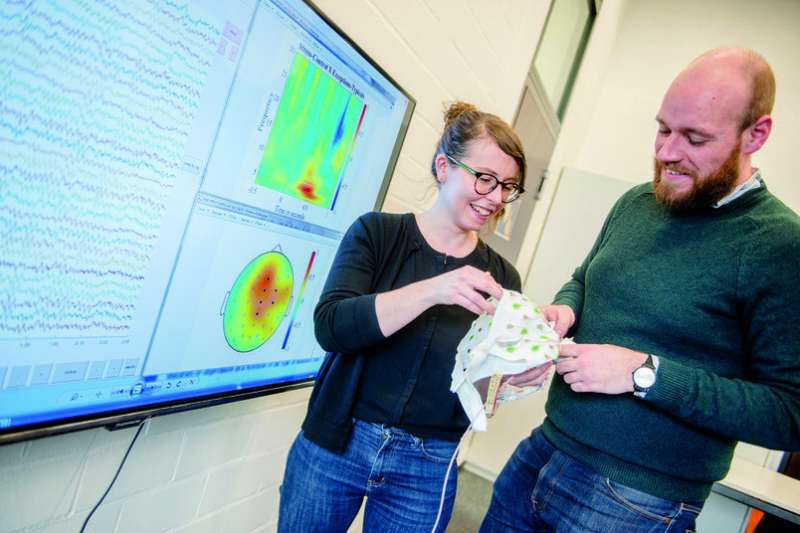How the brain might compensate for stress during learning

When people have to assess a situation within seconds, it helps to draw on learned categories. Psychologists from the Ruhr-Universität Bochum used electroencephalography (EEG) to study how well such category learning works during a stressful episode. They published their research on a mechanism, the brain may compensate stress with, in the Journal of Cognitive Neuroscience.
The scientists compared the performance of 16 stressed men with the performance of 16 relaxed men in categorisation learning. Half of the participants had to put their hands in ice water and were filmed before they took the learning test—an accepted stress test scenario. The other half put a hand in warm water, without being filmed. "We decided to design our study with men only for now, because women tend to react differently to stress during their hormone-cycle," says Marcus Paul, one of the authors.
During the test, the participants had to divide rings according to colour scheme in two categories. They not only had to learn to assign typical objects, but also exceptions—rings that differed from other rings within their category. Previous studies have shown that the brain regions that are crucial for learning exceptions are particularly sensitive to stress. During the test, the scientists measured the brain activity of the participants by EEG.
The stressed participants performed as well as the relaxed ones in the categorisation test. But their brains showed increased activity during the test, and they used additional brain regions. The EEG of the stressed participants revealed increased activity in the theta-frequency above the medial prefrontal cortex, particularly when the participants learned the exceptions. Theta-waves reflect cognitive control mechanisms.
"We think we have found a mechanism that allows us to give a good performance in a categorisation test, even during stress," says Oliver Wolf.
In the next step, the scientists from Bochum intend to analyse, whether the change in the neuronal activity of stressed and relaxed participants during the learning process affects their performance in a test conducted on the following day.
More information: Marcus Paul et al, Stress Elevates Frontal Midline Theta in Feedback-based Category Learning of Exceptions, Journal of Cognitive Neuroscience (2018). DOI: 10.1162/jocn_a_01241
















